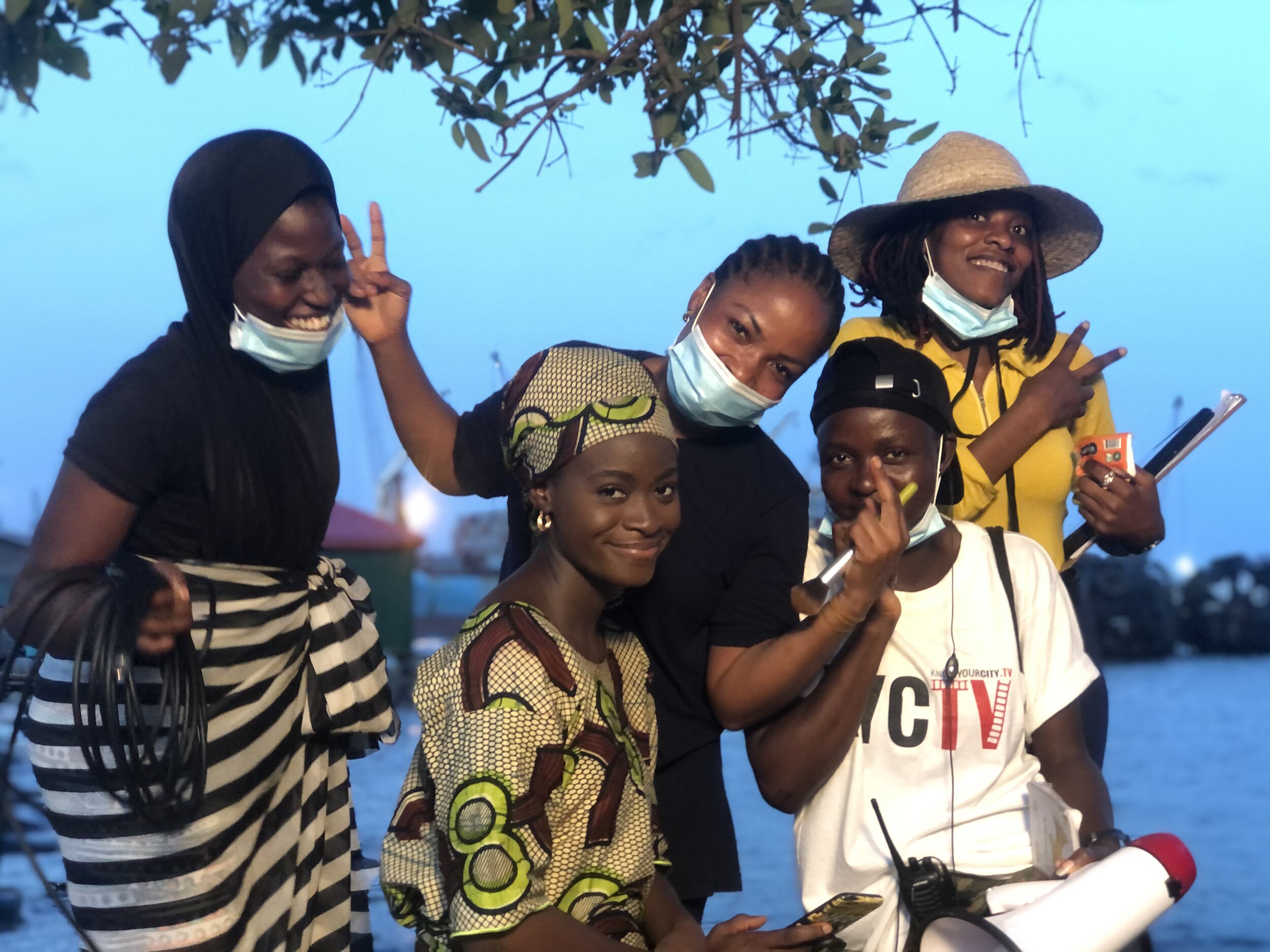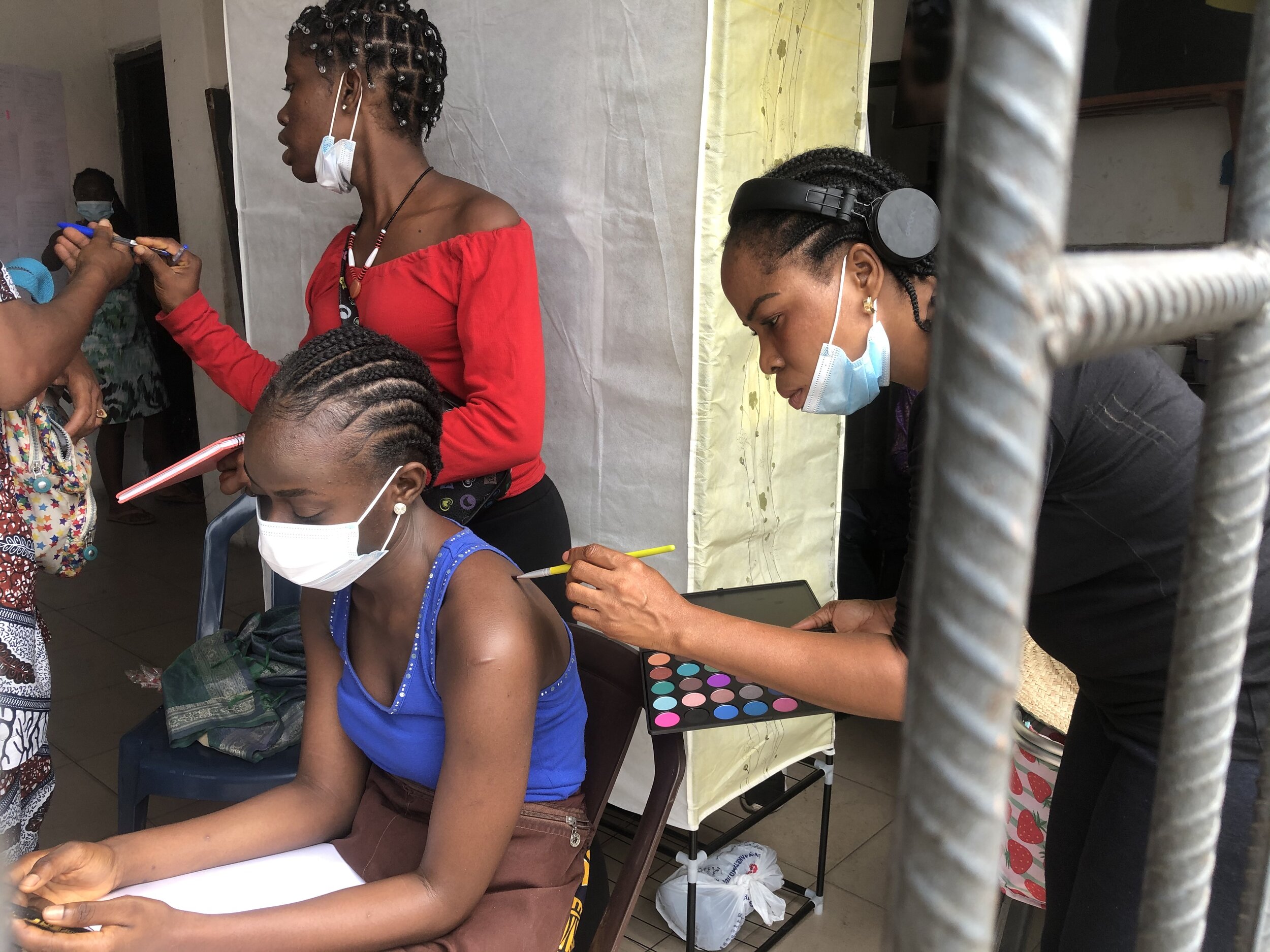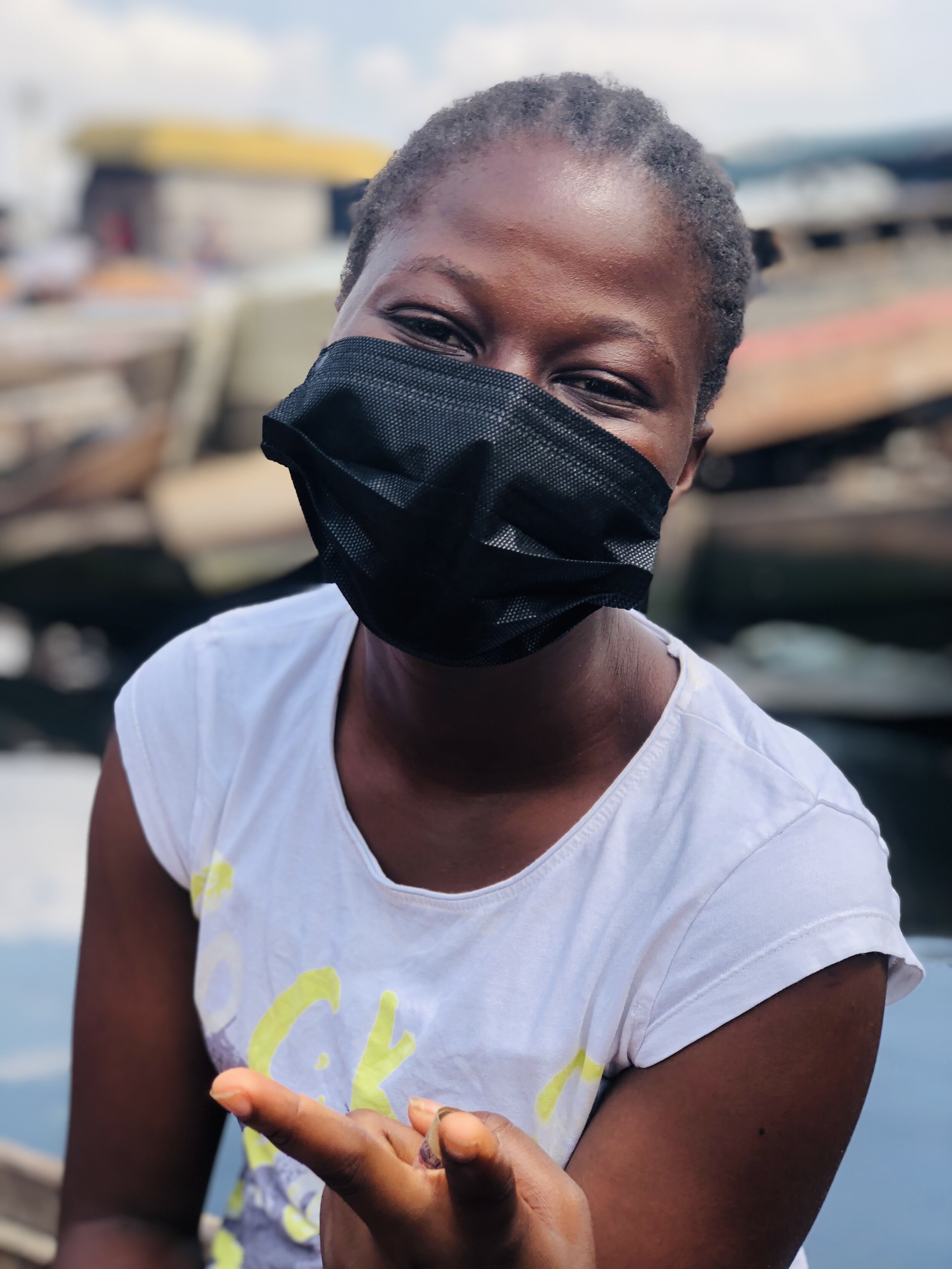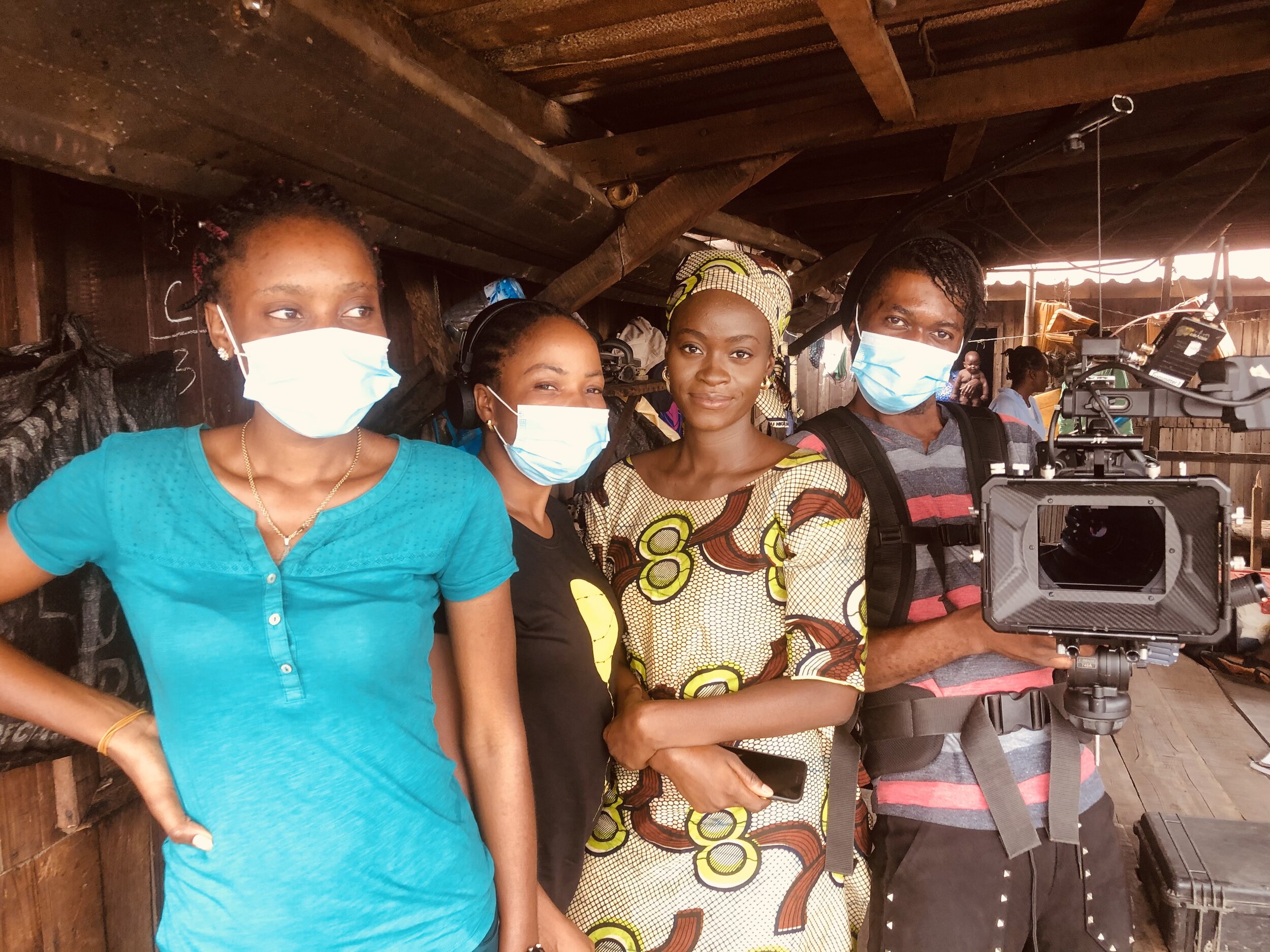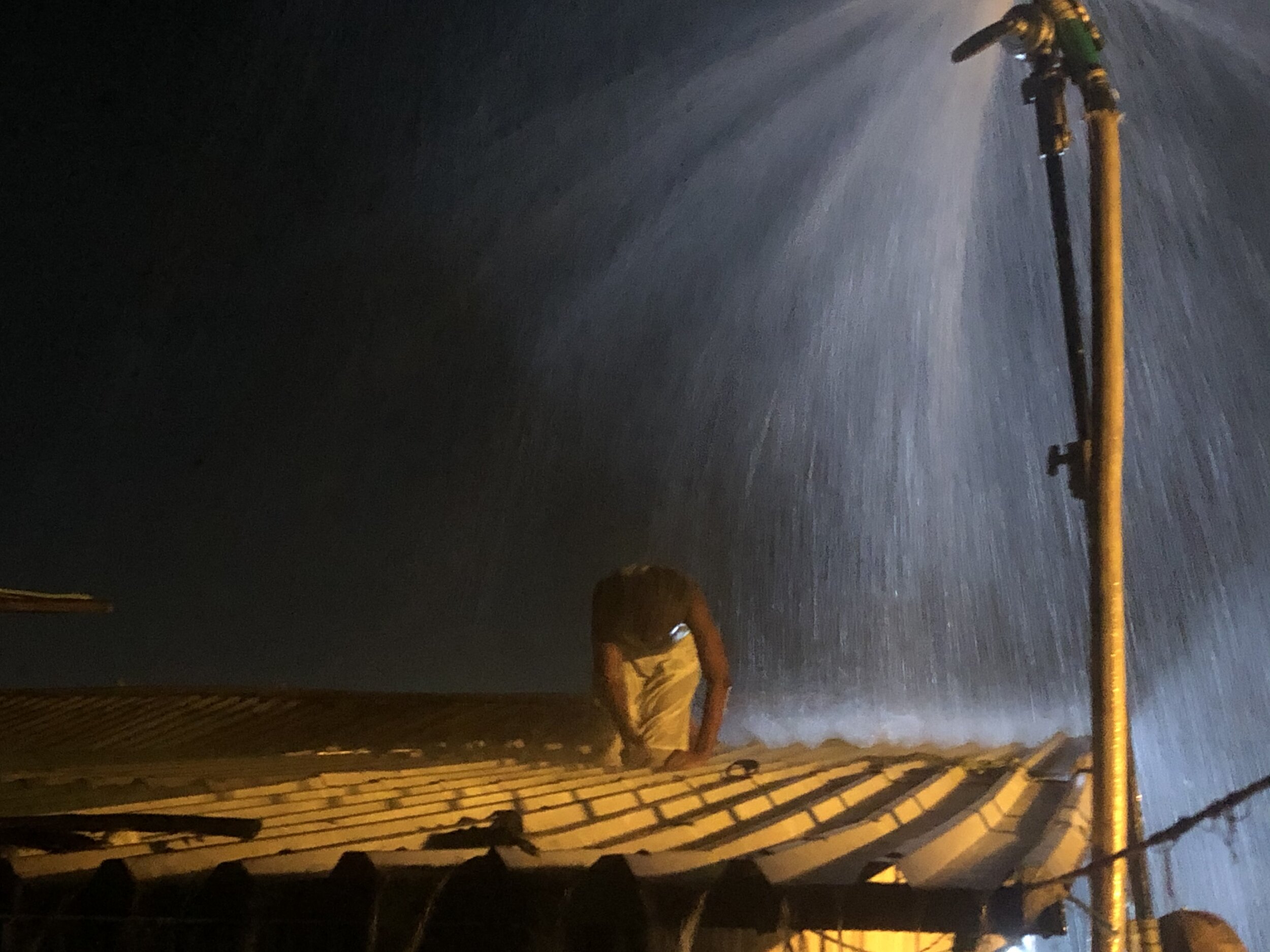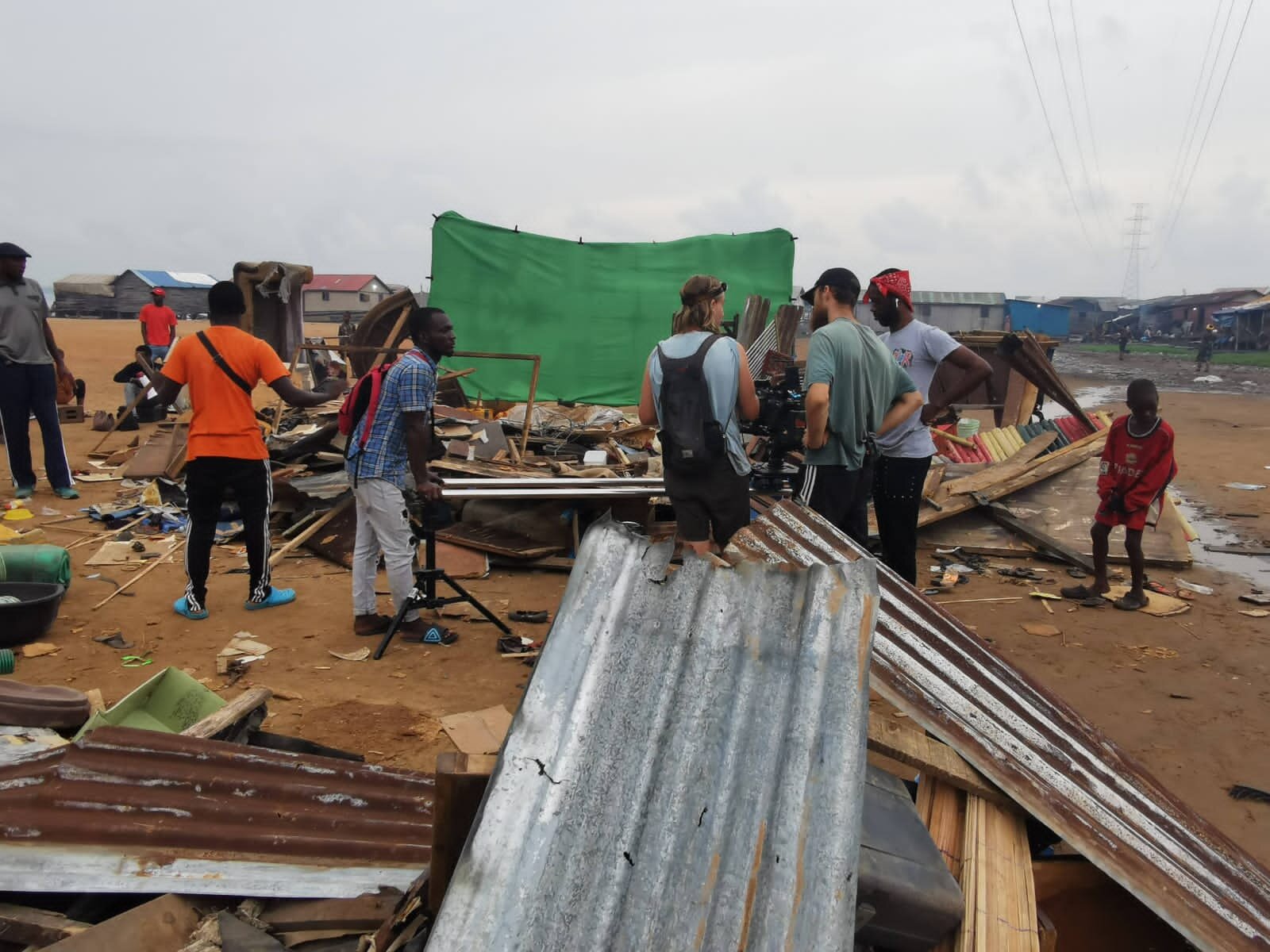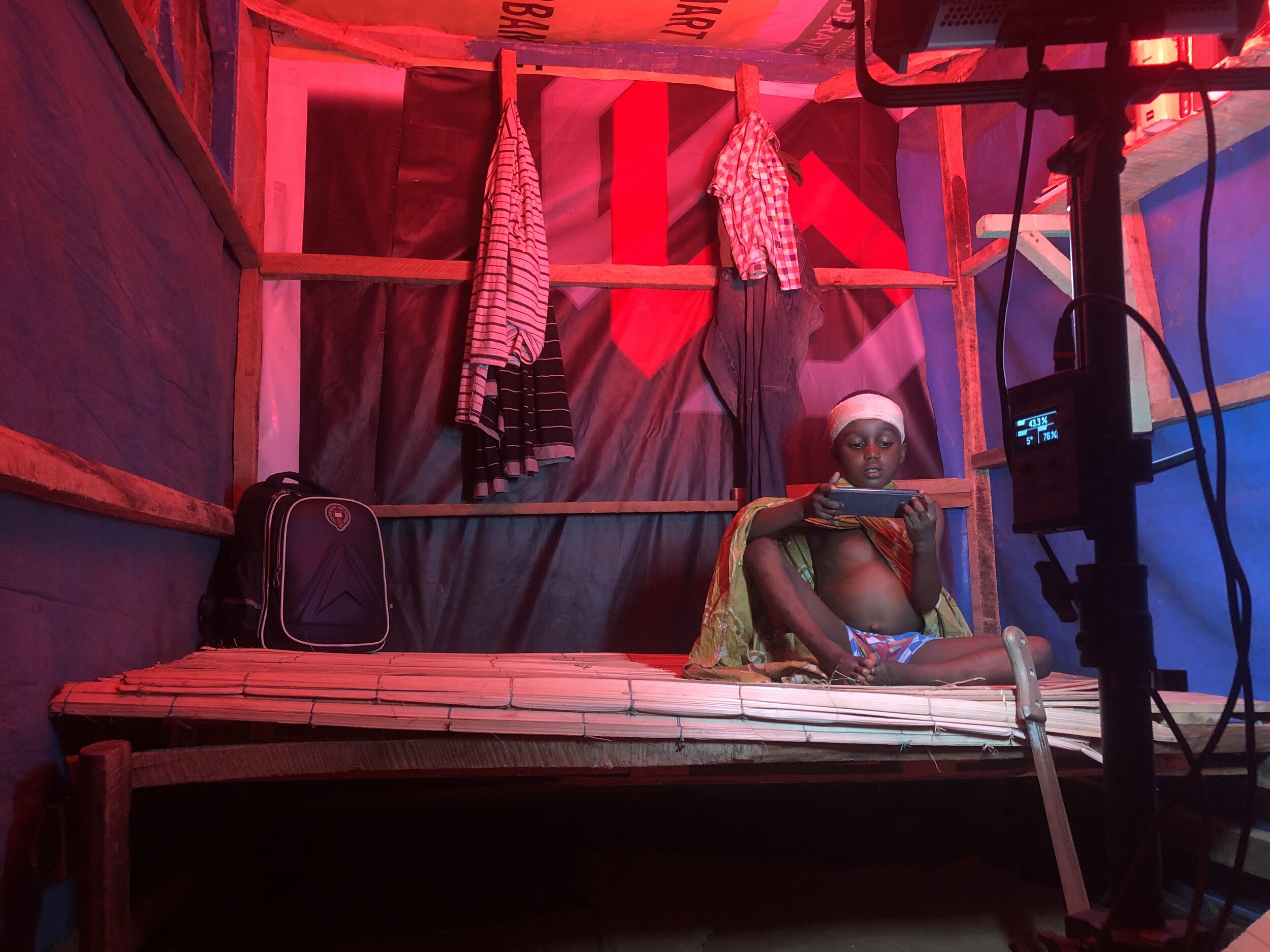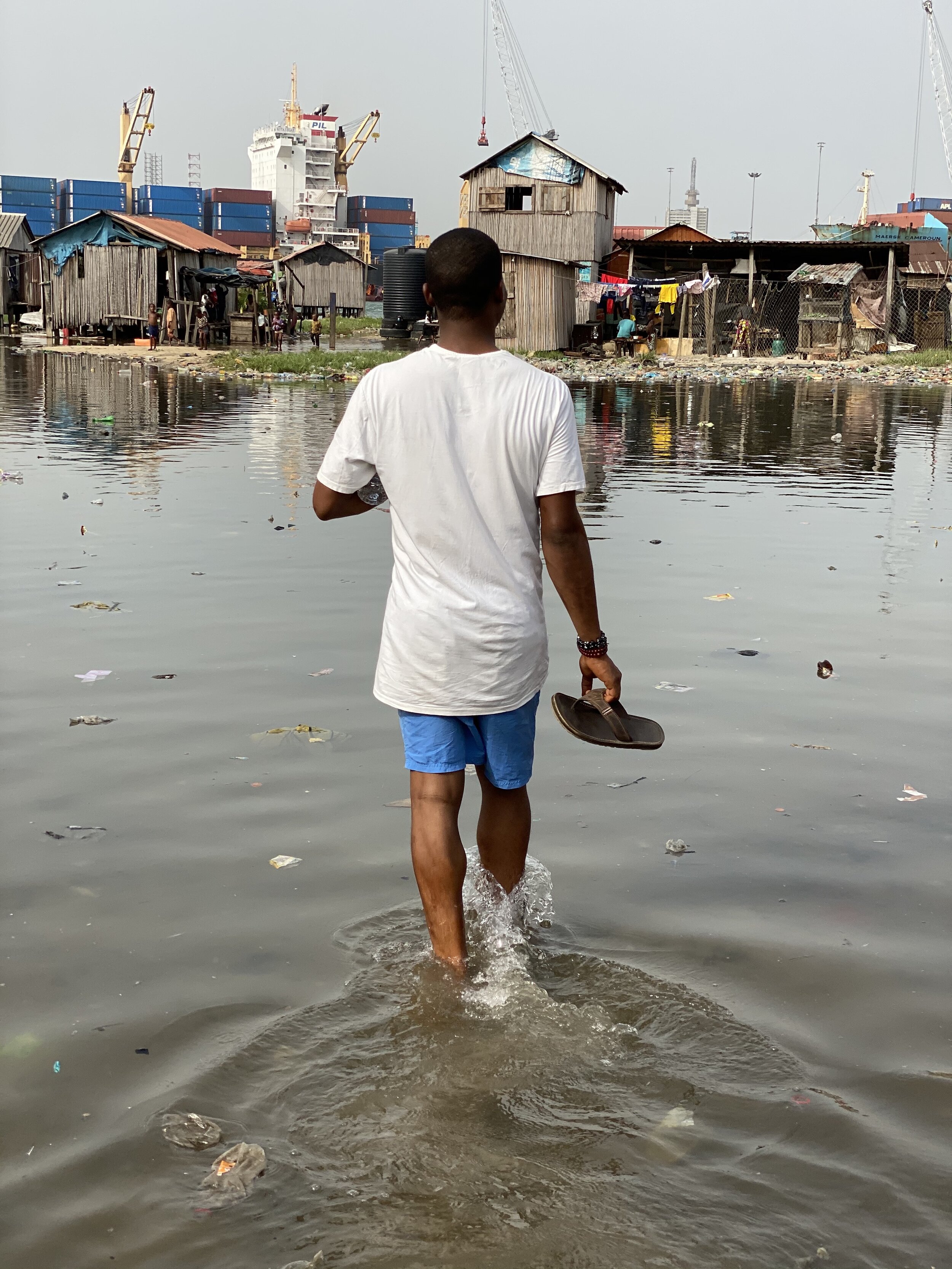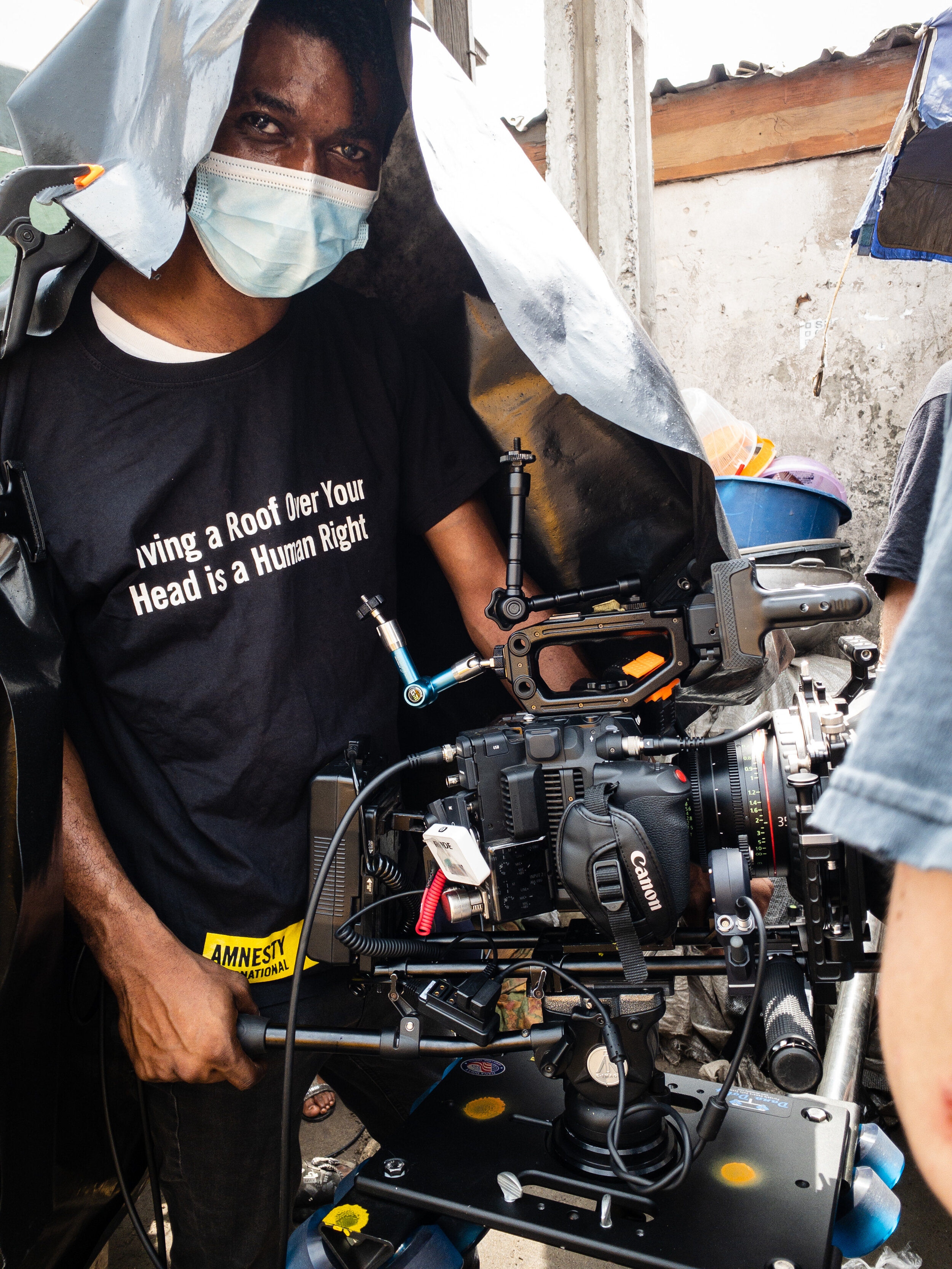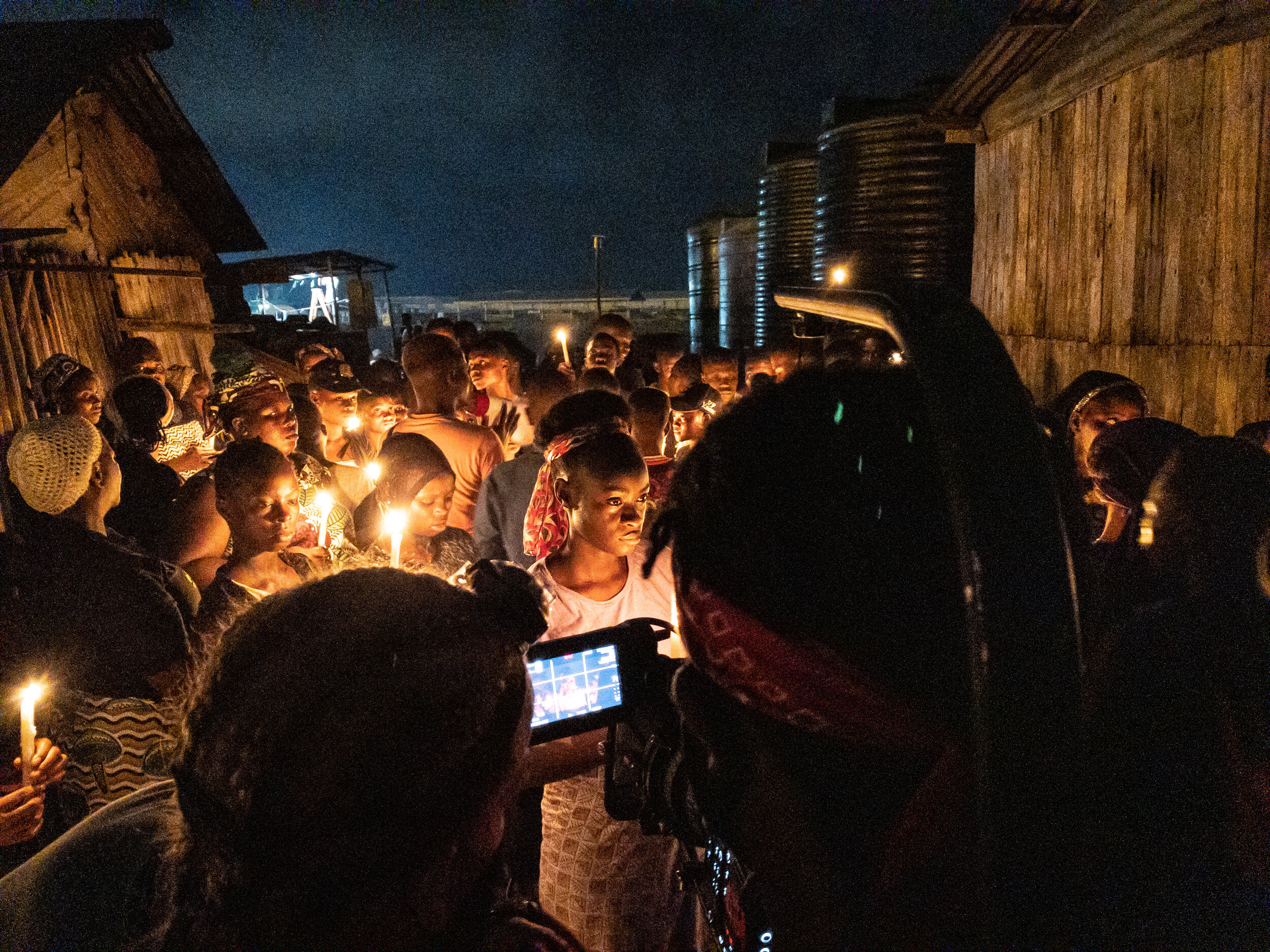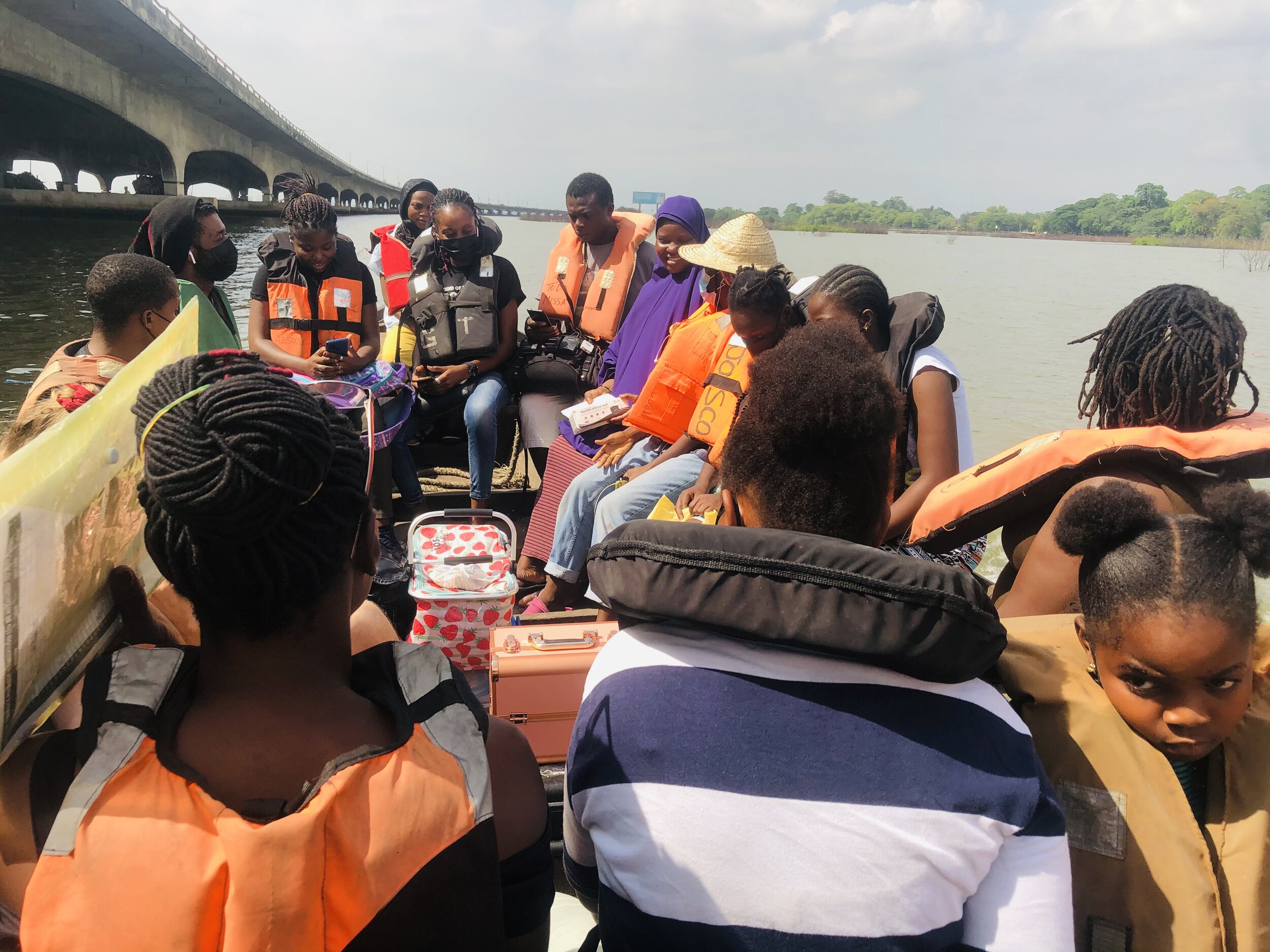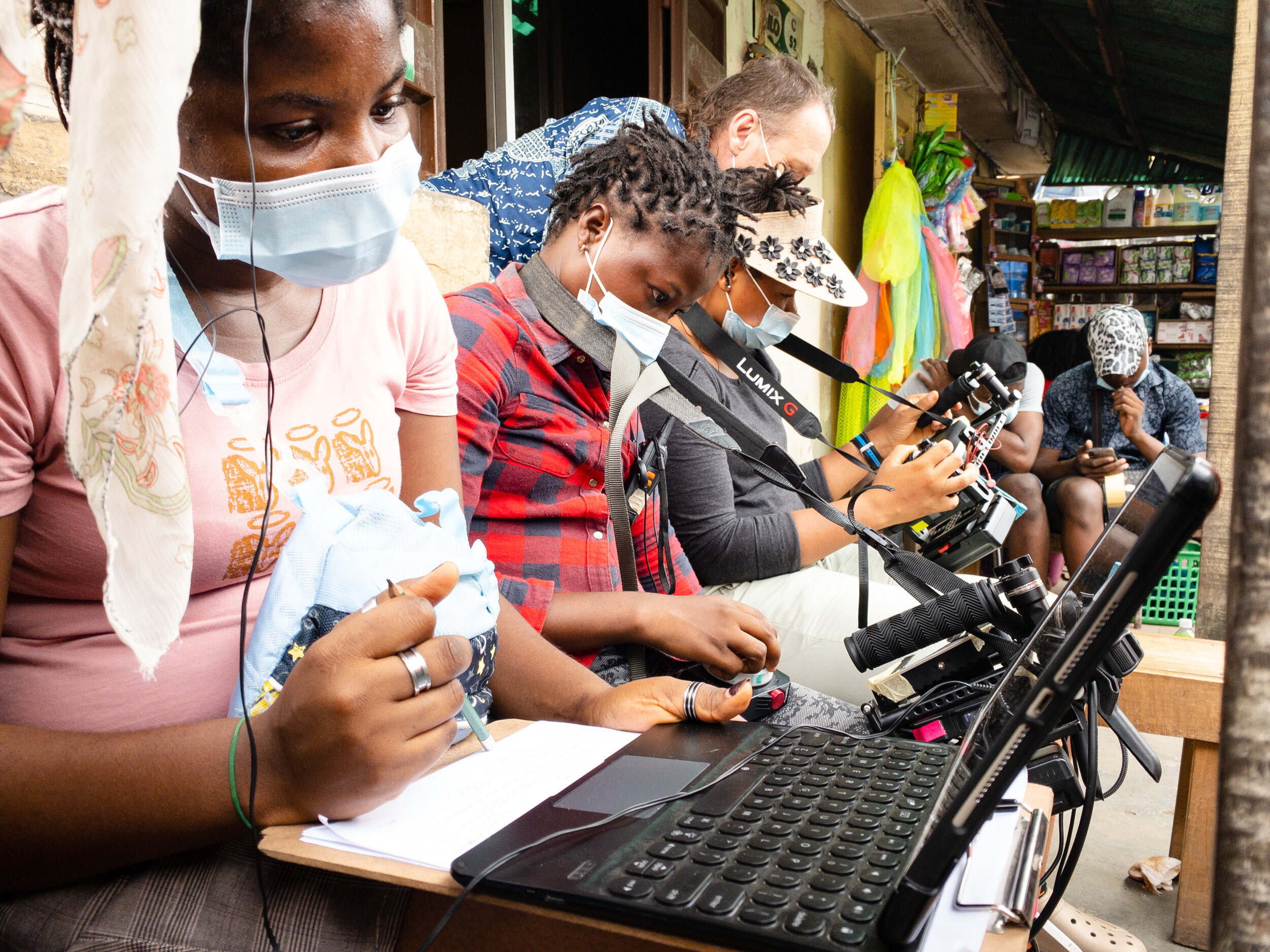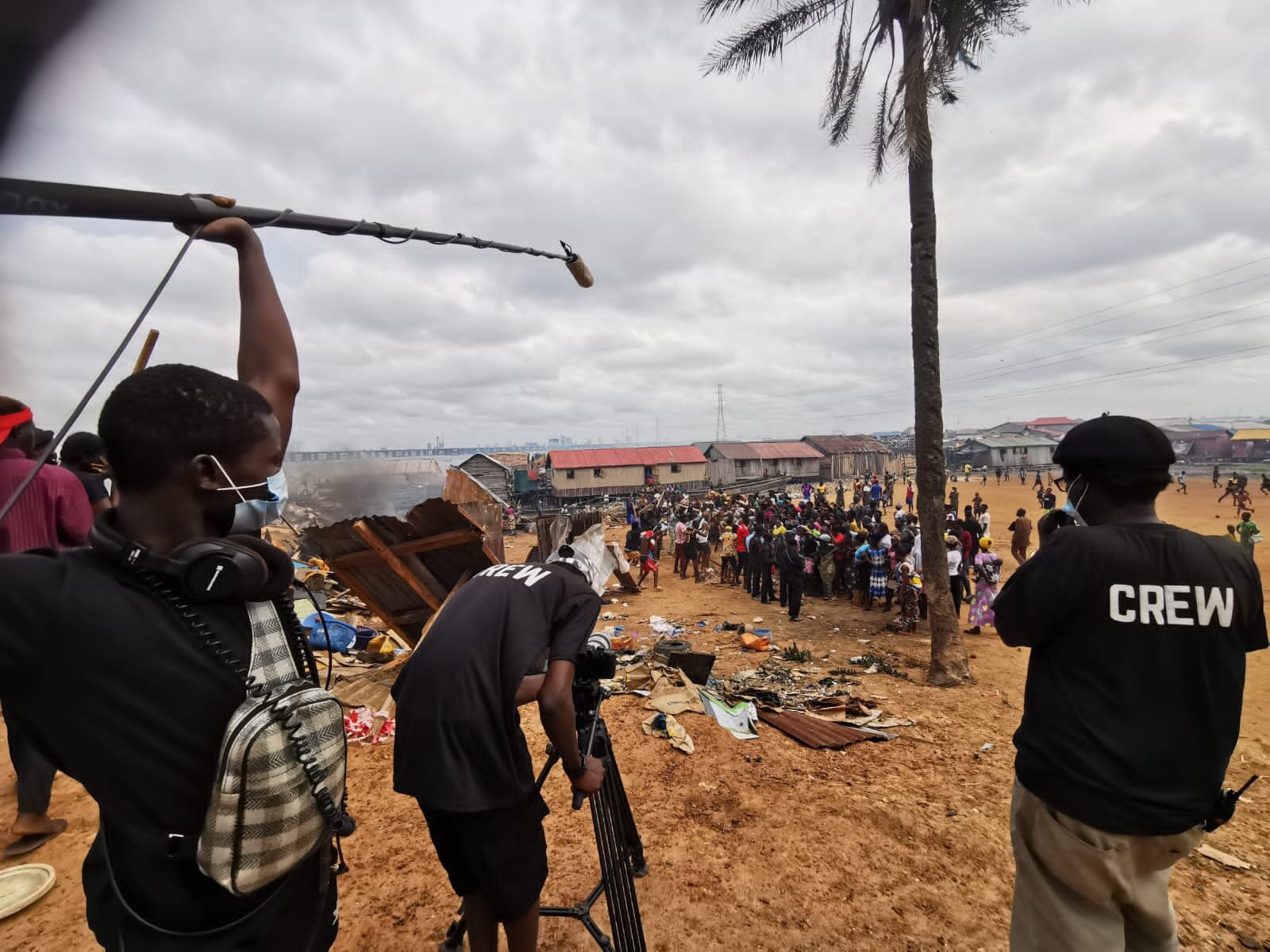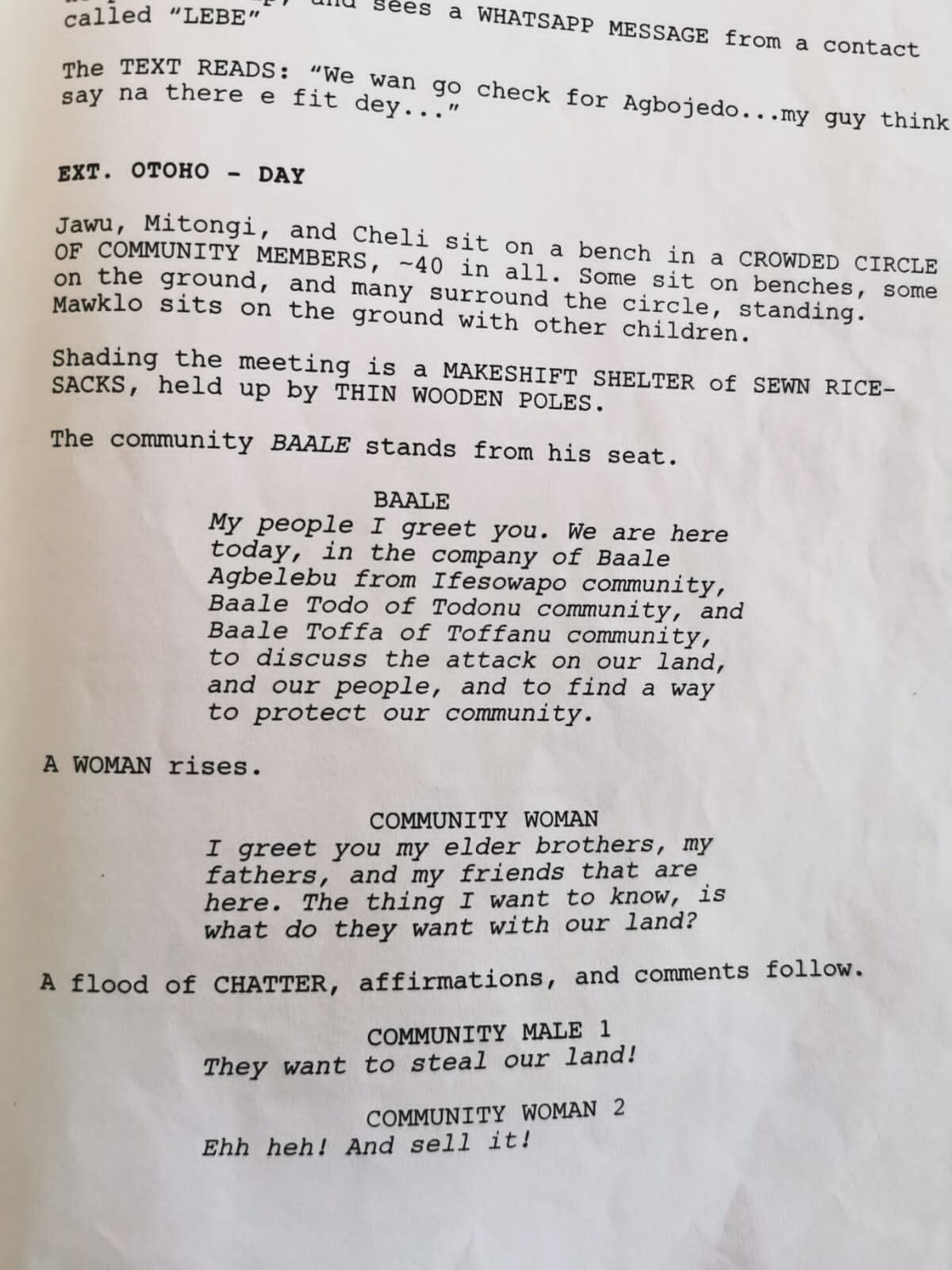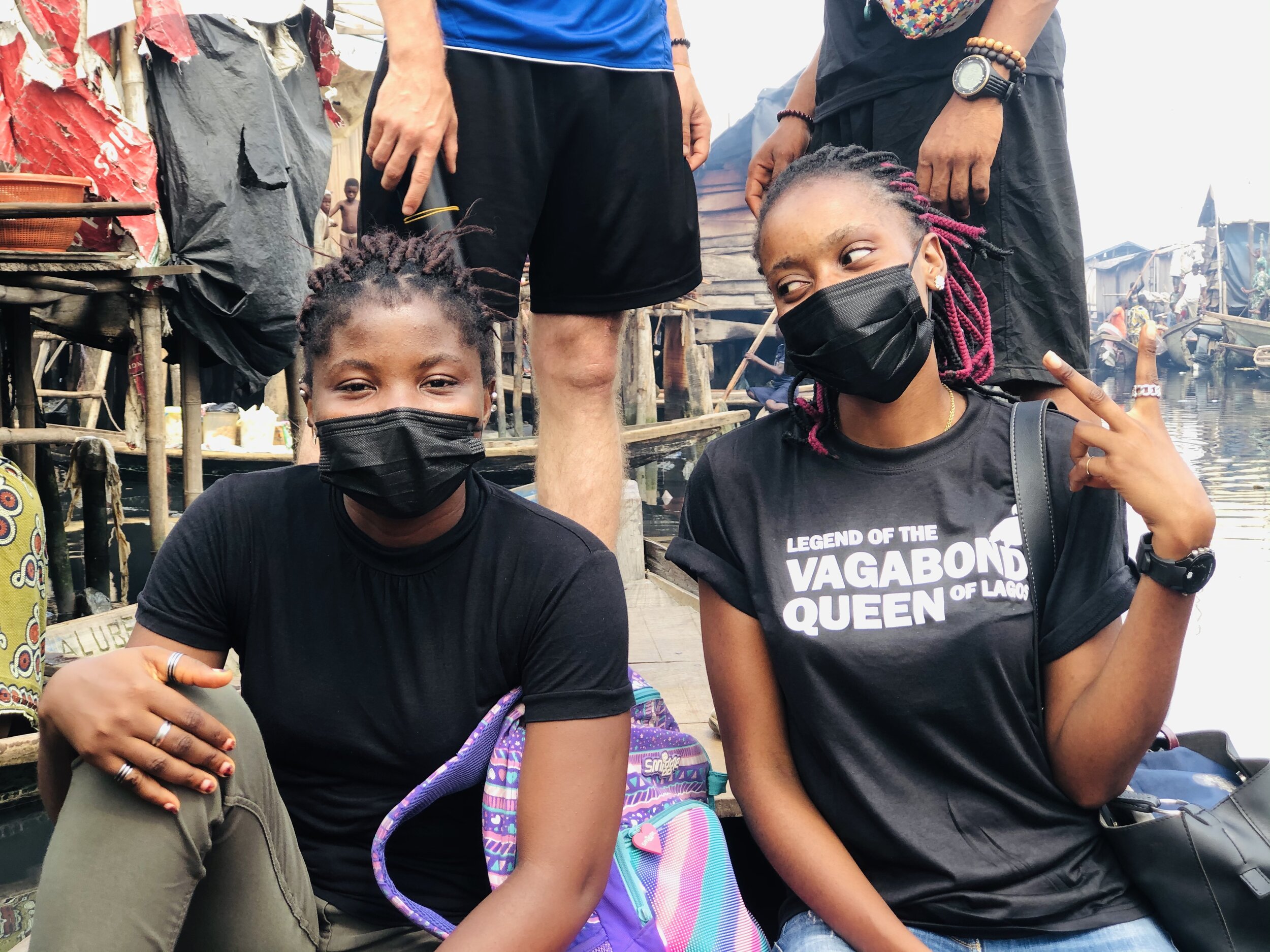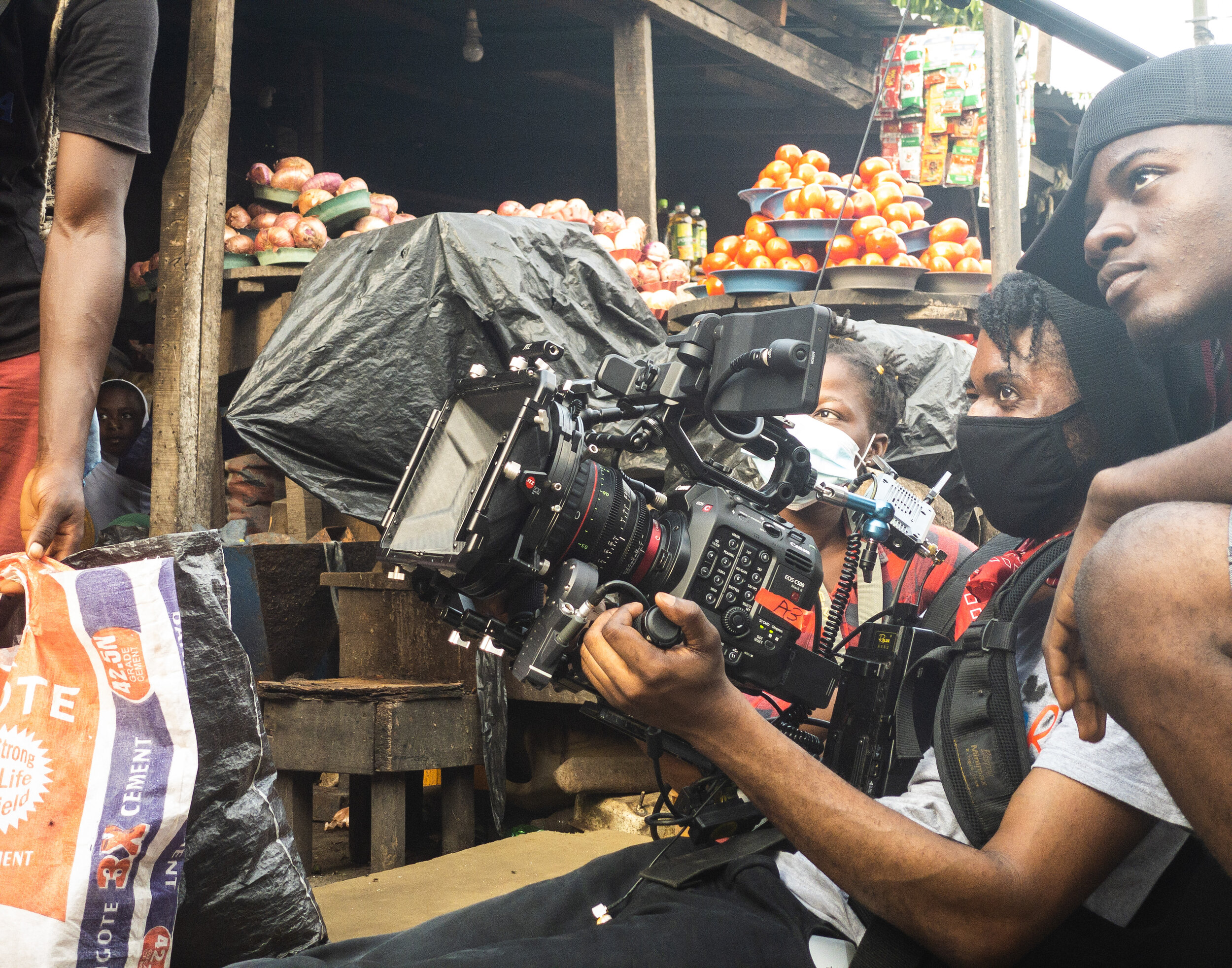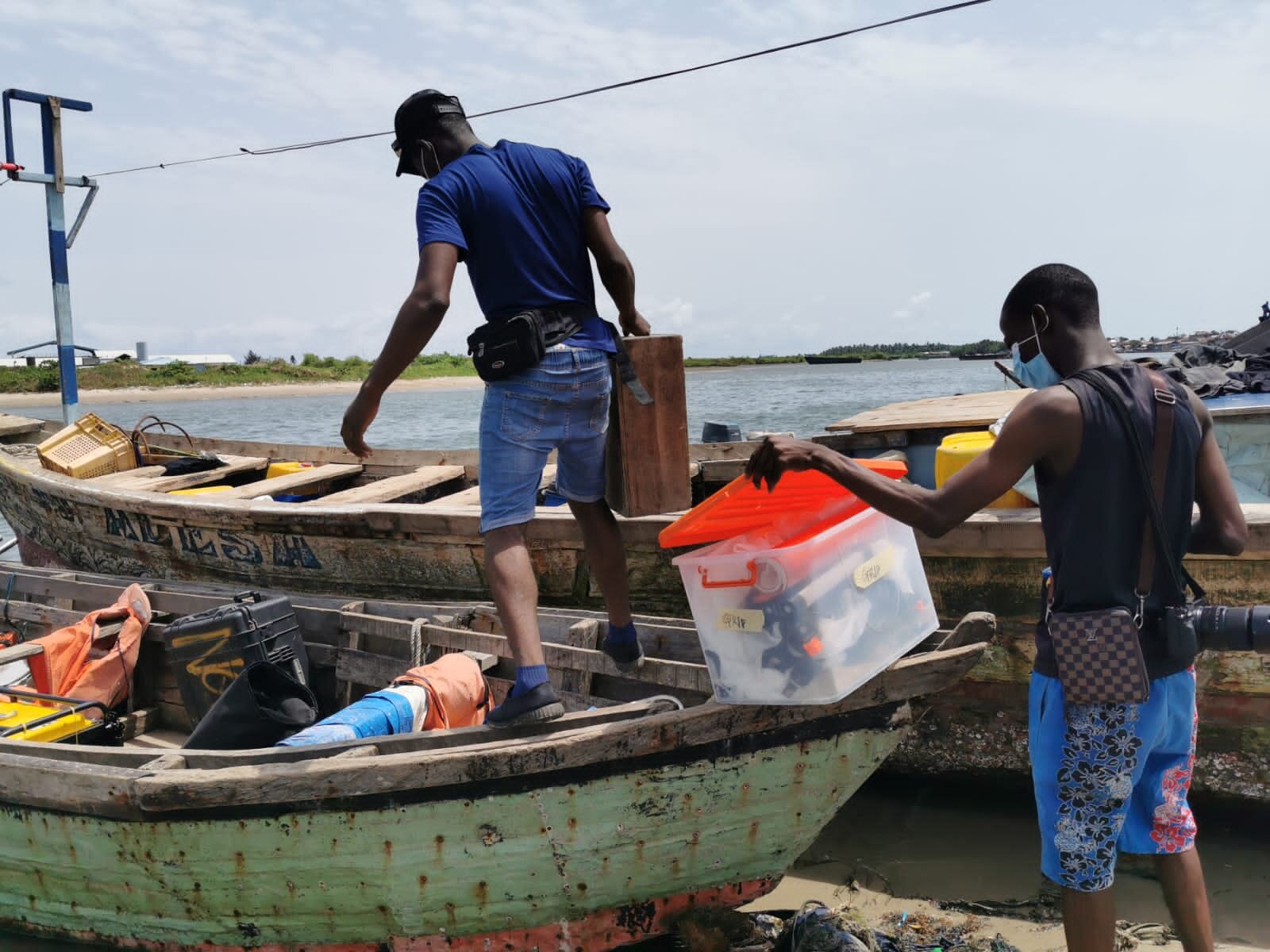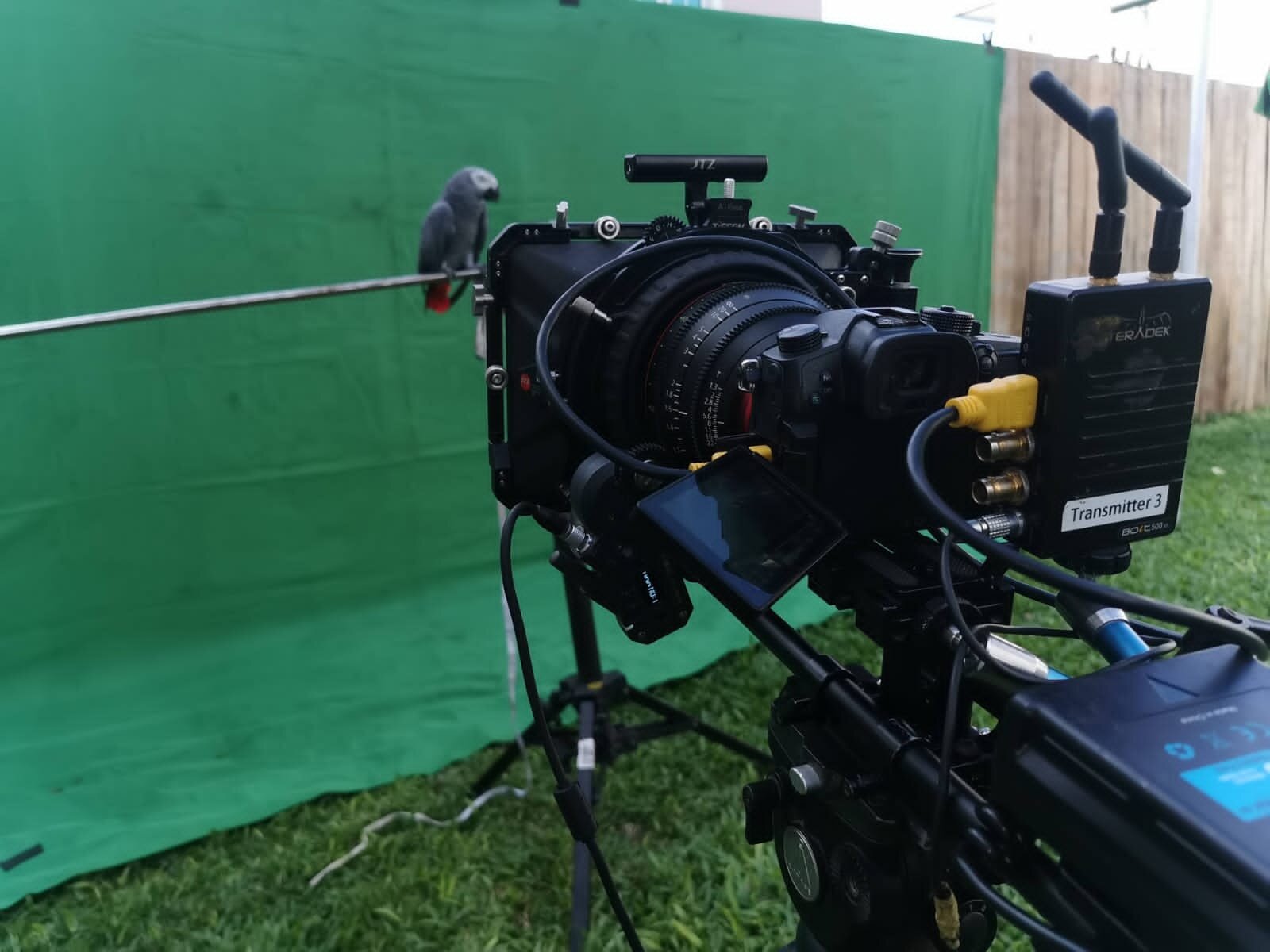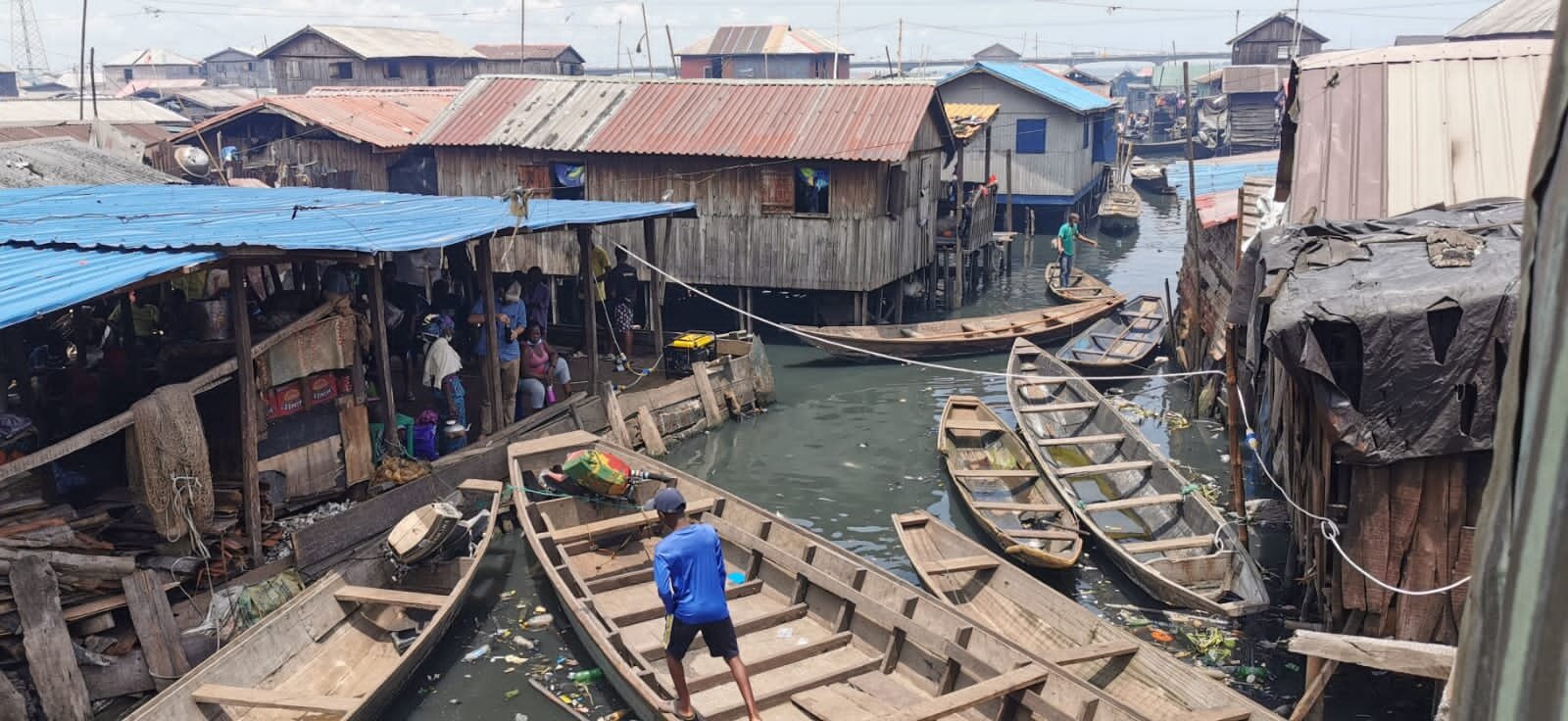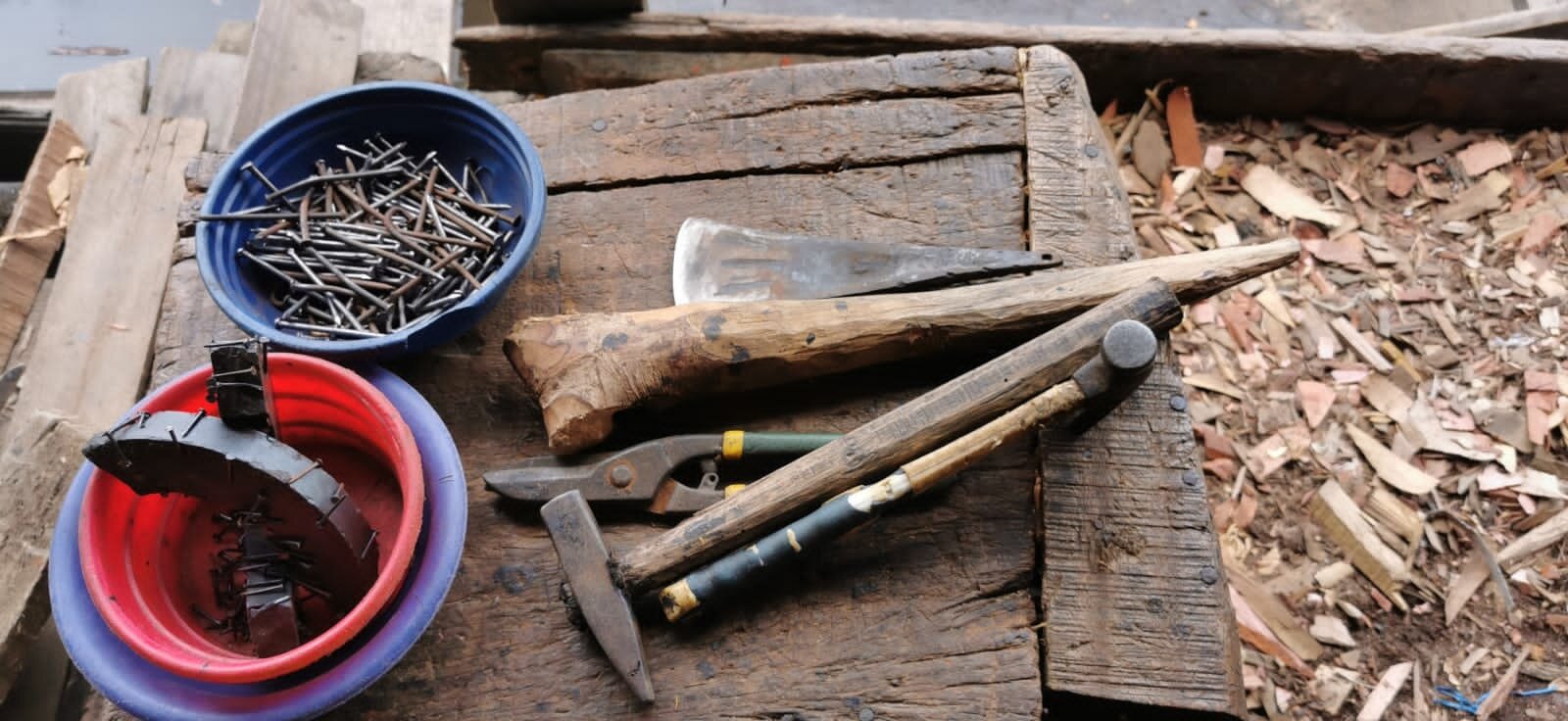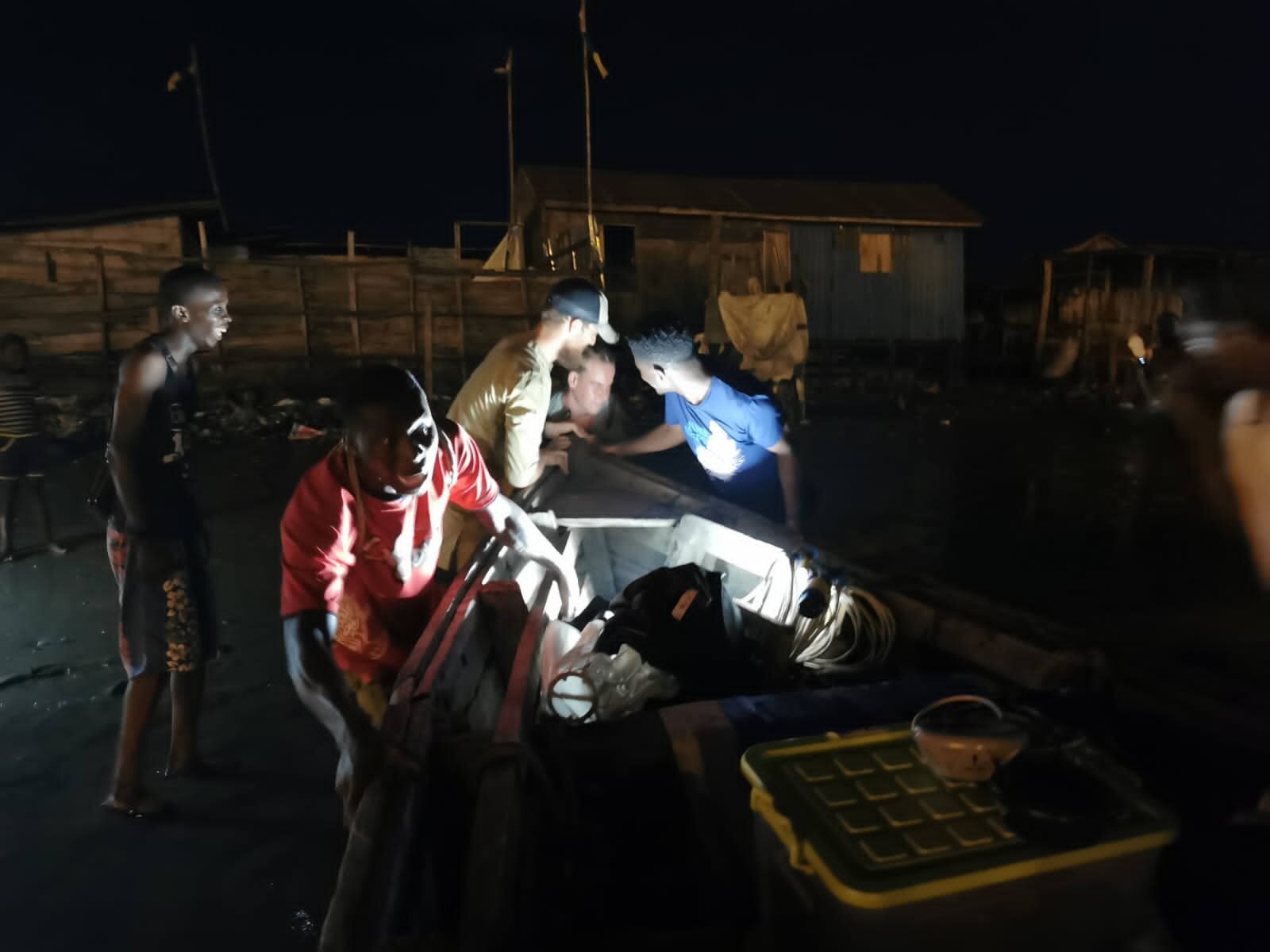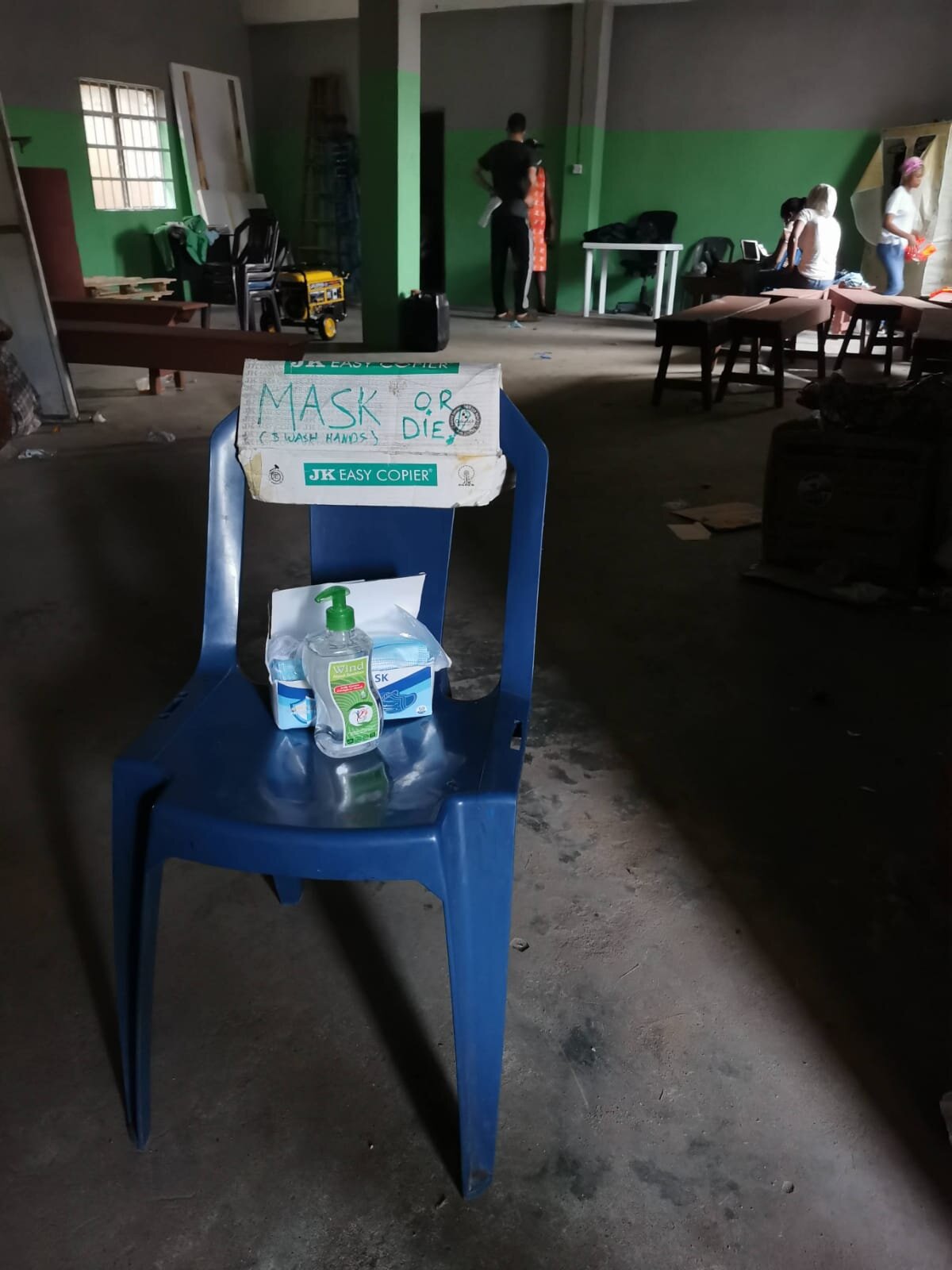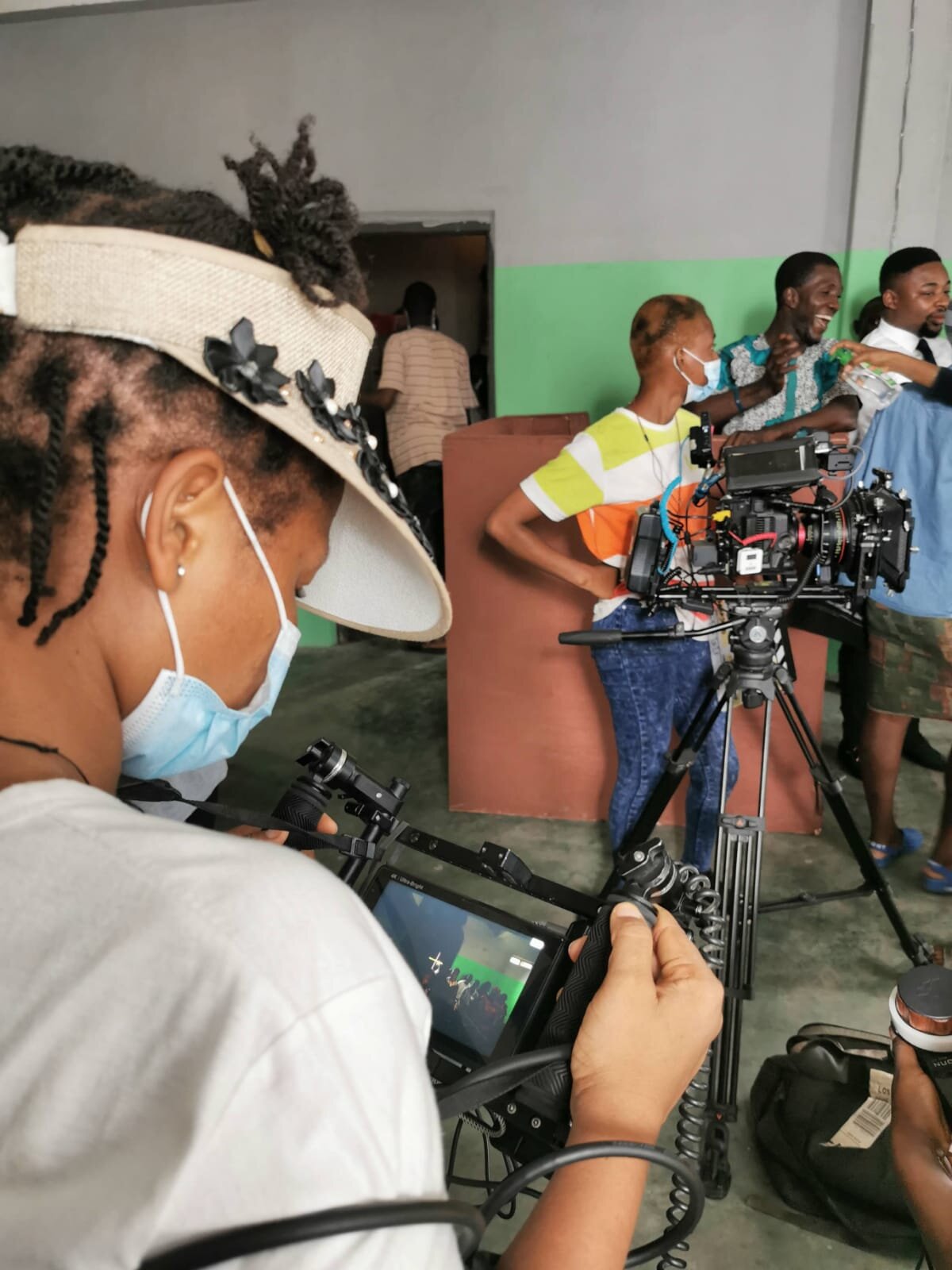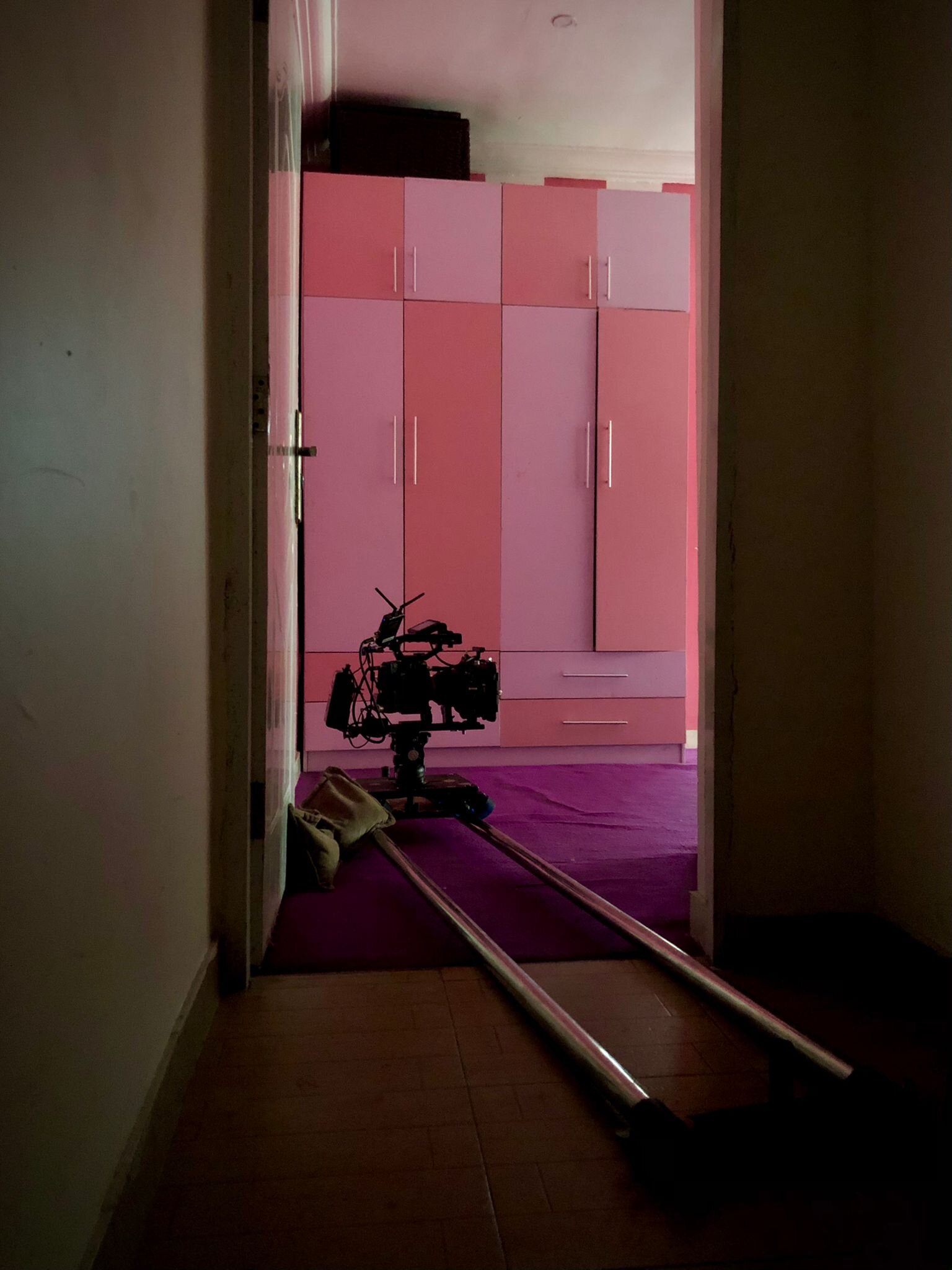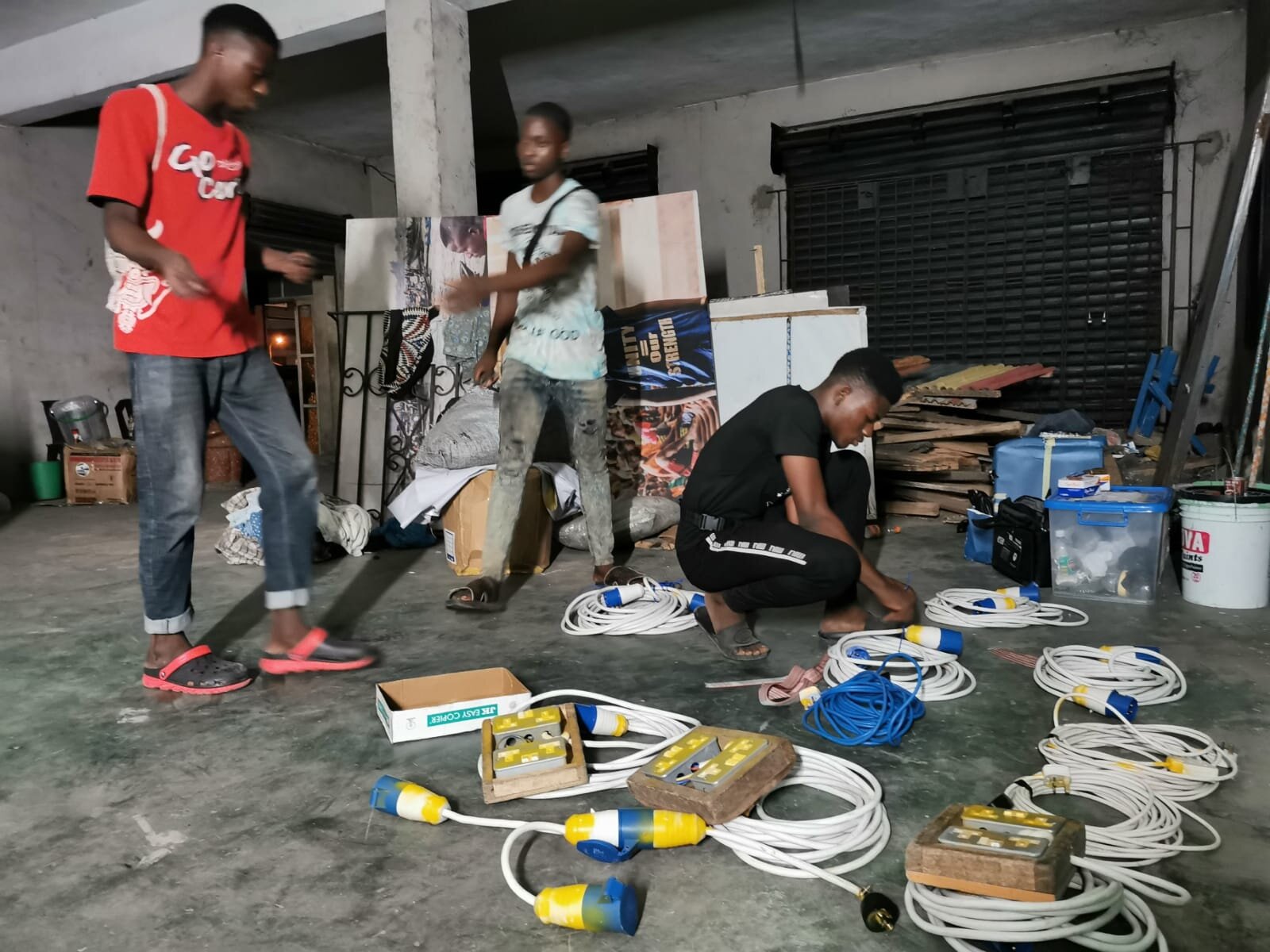THE LEGEND OF THE VAGABOND QUEEN OF LAGOS
The Legend of the Vagabond Queen of Lagos is a social impact film that tells the story of a young mother from a waterfront slum in Lagos who stumbles upon a horde of corrupt blood-money earmarked for a luxury condo development to be built where her community stands, and a journey that takes her from isolated individualism to a being a unifying force in a community that stands to lose everything.
The film brings the audience into the world of Lagos’s waterfront settlements with an unprecedented realism –– one in which the magical is woven into the mundane, and where the waterways and footpaths bustle in ancestral rhythms under the shadow of ever-encroaching urbanization. Rooted in this context, the film’s arc traverses Lagos’s profound wealth gap, offering an image of a mega-city torn by distinct economic realities where corruption and impunity have placed the urban poor in the crosshairs of an exclusionary conception of “development”.
The film had its world premiere at the Toronto International Film Festival on 7 September 2024. Since then, it has screened to great acclaim at festivals from Philadelphia to New York, from London to Jeddah, Freetown to Abuja, and (of course) Lagos. Upcoming festival screenings include:
18 January 2025 - Best of ADIFF (African Diaspora International Film Festival), New York, NY, USA;
25, 28, 29 January 2025 - Götenberg International Film Festival, Götenberg, Sweden;
27 January 2025 - Chandler International Film Festival, Chandler, AZ, USA;
1 February 2025 - Cascade Festival of International Films, Portland, OR, USA;
3 February 2025 - International Development Week, Ottawa, Canada;
13 February 2025 - San Francisco Indiefest, San Francisco, CA, USA; and
22 February - 1 March 2025 - FESPACO, Ouagadougou, Burkina Faso.
In 2025, while the festival run continues, we are launching the second phase of our impact campaign aimed at generating support for the resettlement of the Otodo Gbame community, whose real-life struggle and epic resistance inspired the film. Learn more about Otodo Gbame, the resettlement campaign, and request/offer to host an impact screening. For press and other inquiries please contact info@justempower.org.
The Context
30,000 DISPLACED
The community of Otodo Gbame was forcibly evicted from their homes in a series of attacks by police and armed thugs that took place between November 2016 and April 2017. In the final eviction, those still holding on were forced to flee by boat into the lagoon. From there, they scattered across Lagos — refugees in their own city.
Nine people are believed to have drowned trying to escape, and two people were shot — one died. An additional 15 people are still unaccounted for, and 30,000 more remain displaced.
This film is a work of resistance — made in memory of lives lost and fractured in the eviction of Otodo Gbame — and will be a mobilization tool in the struggle for justice and the inclusive development of the largest city in Africa.
Our story is set against the backdrop of the ongoing forced eviction threat in Lagos, Nigeria — a struggle for the heart and soul of this megacity. Rich and powerful dynasties plan to turn Lagos into “the next Dubai,” a vision with no space for the urban poor. Although this is a work of fiction many of the scenes described are based on true events that happened over the course of the violent forced eviction of over 30,000 from the Egun fishing community of Otodo Gbame between November 2016 and April 2017.
The Legend of the Vagabond Queen is not a stand-alone film. It is part of an ongoing, multi-pronged campaign by Slum Dwellers International (SDI) and its affiliates, including the Nigerian Slum / Informal Settlement Federation and Justice & Empowerment Initiatives in Nigeria, to end forced evictions of the urban poor and build inclusive and resilient cities through partnership with organized urban poor communities. The film builds on over four decades of experience co-creating eviction alternatives by SDI-affiliated slum dweller federations across 36 countries.
The Process
Launched in 2017 through a story-development grant from the Sundance Institute’s “Stories for Change” Fund, this project is built around of a core ethos of co-creation — as articulated in Katerina Cizek’s “Co-Creation Manifesto”. Among these principles:
Projects don’t originate from the singular, auteur vision of one person. Rather, ideas originate from relationships and deep listening and dialogue.
Projects emerge from the process, rather than the other way around, with many outcomes including quality and compelling media that resonate beyond the margins.
Make media from within communities and with people rather than for or about them.
Reframe who gets to tell which story, who owns it and why. Grounded in principles of racial equality, narrative sovereignty and digital justice.
All partners respect each others’ expertise including first-lived experience. Challenge power dynamics, and prioritize inclusion and diversity.
By bringing community voices into core creative and production roles, the project reframes the traditional approach to bringing marginalized stories into film, allowing for the story to achieve a unique level of realism in its sequences and imagery while creating lasting capacity within these communities to produce social impact media beyond this project.
Underpinned by these principles, LVQ is a collaboration between young storytellers from the Nigerian Slum/Informal Settlement Federation and a group of film professionals, and actualizes a co-creative production model where members of the communities in which the story is based are integrally involved in every aspect of the film’s production. From the writers room, to the creative direction, to the cinematography, to the cast, the production’s creative fabric is infused with the voices, perspectives, and stories of Lagos’s informal settlements.
The film’s story development began in 2018 through an innovative approach to character-development which involved cataloguing over 70 interviews with community members and folding their personalities and stories into the characters of our film (see video above). While the film, by its nature, centers around the a group of individuals, it will carry the voices of Lagos’s millions living in informal settlements.
The film’s story is a mosaic of the environment from which it emerges. The plot is shaped by the lived experiences of community members of Lagos’s informal settlements, and the central characters were constructed through building 72 interviews of community members into a cast of characters that reflect the faces and stories of Lagos’s slum communities.
In April of 2021, after three years of script development and many months of production planning, our film was cast, locations locked, and our team was ready to shoot. 36-days, 110 scenes, thousands of takes, 50+ boat rides, 20 packets of malaria treatment, nine terabytes of footage, 7 communities, and 15 smoke grenades later, we emerged from principal photography having truly accomplished something new – both in terms of the film’s narrative substance, and in its approach. Whereas most productions plan on how to avoid Lagos’s infamous congestion and wahala – or chaos – we leaned into it, shooting the majority of our film amidst an organic Lagosian bustle.
Scroll through the photos above to see some behind-the-scenes shots from the shoot!
The film is currently in post-production, and aims to be completed by February, 2022. While completing the film will be an important milestone in the journey, it will also mark the point at which the real work begins: using the film as a catalyst in the decades-long struggle to end forced evictions.
The Impact
The film will show that violent forced evictions — often driven by land grab and private interest that co-opt government machinery — remain a devastating reality for Lagos’s urban poor communities, and will carry a message of resilience for slum communities facing the threat of forced eviction: pli pli toleton, mije kpo godo tolanayo (unity is our strength). In doing so, it will create impact in three distinct areas:
By screening the film to a global audience, including opinion leaders and policymakers, the film will put forced evictions, security of tenure, and housing rights of the urban poor back at the center of the global discourse on urban development and resilient cities, and enhance accountability frameworks for international actors contributing towards displacement.
By tackling local misperceptions about urban poor communities, educating the general population about the violent nature of forced evictions, and linking the film to the story of Otodo Gbame, the film will build broad-based support for national legislation prohibiting forced evictions, and for #Justice4OtodoGbame.
By presenting unity, community savings, and collective decision-making as the necessary foundation to resist land grab and forced evictions, and by countering perceptions of powerlessness vis-a-vis government and wealthy private actors, this film will build larger, strong, more organized, and more strategic slum dweller federations equipped to tackle the justice and development challenges facing the urban poor.
The Team
The Legend of the Vagabond Queen is a co-collaboration between Justice & Empowerment Initiatives, the Nigerian Slum/Informal Settlement Federation, and Slum Dwellers International, with support from the following partners:
And potentially you! You can make donations to support the film’s production — both film and impact — through this link, or by writing a check to “Justice & Empowerment Initiatives Inc.”. Checks can be mailed to 91 Cornell Street, Newton, Massachusetts, 02462, USA). Every dollar counts, and will help make the film — and its impact — everything it can be.






